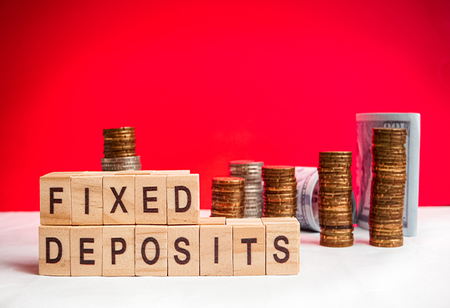What If Bank FD Return Fails To Beat 5.4% Expected Inflation in FY24?
By Consultants Review Team
 Last year, rates on fixed deposits (FDs) have risen gradually as FDs are very popular among the elderly. However, the post-tax returns may not be as attractive although FDs are well-known for their security and insurance coverage of up to 5 lakh per account. Yes, receiving a 7% interest rate on a term deposit does not imply that you would receive the same post-tax deductions.
Last year, rates on fixed deposits (FDs) have risen gradually as FDs are very popular among the elderly. However, the post-tax returns may not be as attractive although FDs are well-known for their security and insurance coverage of up to 5 lakh per account. Yes, receiving a 7% interest rate on a term deposit does not imply that you would receive the same post-tax deductions.
According to data given by FundsIndia, FD rates have increased in one year, but post-tax returns remain below the FY 24 inflation projection of 5.4%.
When it comes to two-year term deposits, HDFC Bank and State Bank of India (SBI) provide 7% interest rates, but post-tax returns are 4.95%. ICICI Bank offers a 7.1% interest rate on these deposits, while the post-tax returns are only 5.02%.
HDFC Bank, ICICI Bank, and Punjab National Bank (PNB) provide 7% on three-year deposits, although post-tax returns are only 5%. SBI offers a 6.5% interest rate and a 4.63% post-tax return on this term.
"As an investment option in a higher tax bracket, traditional fixed deposits (FDs) have limitations." For example, as a depositor in the 30% tax bracket, we could wind up with an effective interest rate of 5.16%, which is lower than the current inflation rate of 5.5%," stated Amit Gupta, MD, SAG Infotech.
For higher yields, investors might seek A-rated corporate bonds or debt-based mutual funds. "Look into options such as A-rated corporate bonds, which can provide higher annual yields than FDs." However, due to the illiquidity and related risks of corporate bonds, caution is advised," warned Gupta.
Amit Gupta recommends debt-based mutual funds and stock arbitrage mutual funds for their tax advantages, even if they do not guarantee returns. According to Gupta, tax-free bonds given by public sector organizations, which are especially helpful for those in the highest tax bracket, should be explored.
He went on to say that investors should be aware that these bonds must be purchased on the secondary market. It is critical for investors, particularly those in higher tax brackets, to realize the risks of depending primarily on FDs for investing.




